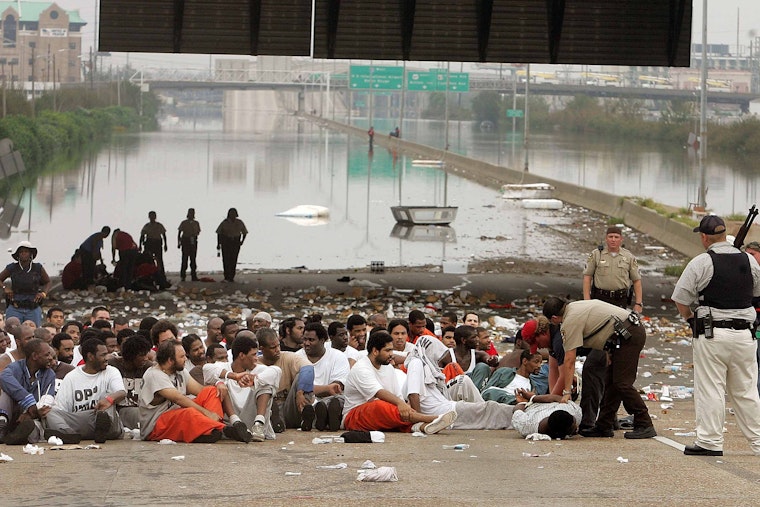In Katrina’s Wake, Criminal Justice Reform Takes Hold in New Orleans
By Norris Henderson

I was one of the lucky ones. When Hurricane Katrina hit 10 years ago this month, I was out of town. Most folks never evacuate.
As the storm approached, officials adopted “contraflow” evacuation measures, scattering outbound traffic in different directions to ease congestion. I had vacation scheduled in September in Memphis, and convinced the family to just go there early. We arrived and checked in with folks back home; everybody said the storm had come and gone. So we were gearing up to head back when we turned on CNN, and saw what had happened.
I had received a Soros Justice Fellowship earlier that year, to work on felony disenfranchisement and the rights of the formerly incarcerated, like myself. I was supposed to start that fall. But then the storm hit, and changed my course. A group of us got together and starting talking about the crisis and the opportunity it presented to push the envelope on criminal justice reform in New Orleans.
The city’s justice system had completely broken down. We started looking at the courts, the police department, the jail—and tried to insert ourselves into the conversation as people started talking about how to fix things. We created an organization called Safe Streets, Strong Communities and took on three campaigns: to downsize the jail, which at the time was the most overcrowded in the country; to make the police department more accountable; and to change the way the public defender’s office operated, making it focus less on pleasing judges and more on taking care of clients.
There was pushback on every front. And it took a lot of arm-twisting and advocacy. But we prevailed. Out of the chaos, we were able to create an independent office to monitor the police department. We were able to change the public defender’s office. And while the conversation about the size of the jail is continuing, we’ve been able to achieve a substantial drop. There were over 6,500 detainees there at the time of the storm. Under the latest plan put forward by the city, the jail is capped at 1,438.
We’ve had a lot of victories. But this war continues. Police are still misbehaving—not just in Ferguson and Baltimore, but here in Louisiana, too. The same underlying circumstances that caused chaos in many parts of the city are still evident today.
As the media marks the 10th anniversary of the storm, there’s a lot of focus on how resilient the people of New Orleans are. The city is resilient, but we haven’t recovered. Tens of thousands of people have not been able to come home. Too many kids have no place to go to school. Access to housing and health care is inadequate.
The water’s gone down, but too many of our folks are still drowning.
Norris Henderson, a 2005 Soros Justice Fellow, is executive director of Voice of the Ex-Offender (VOTE).

